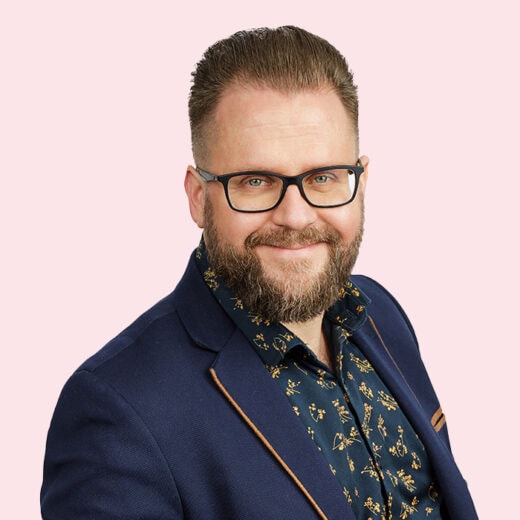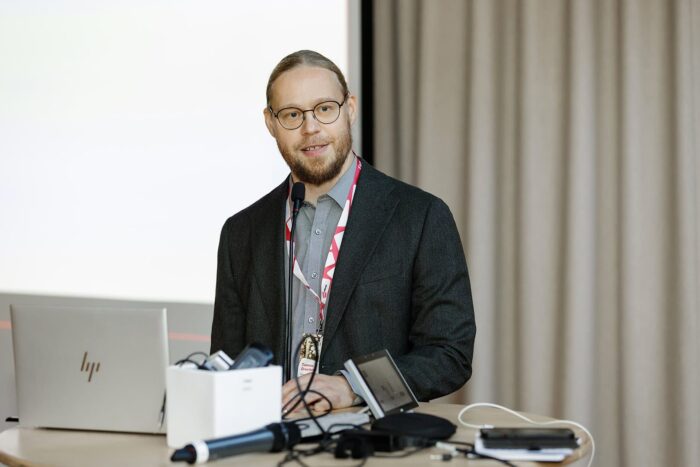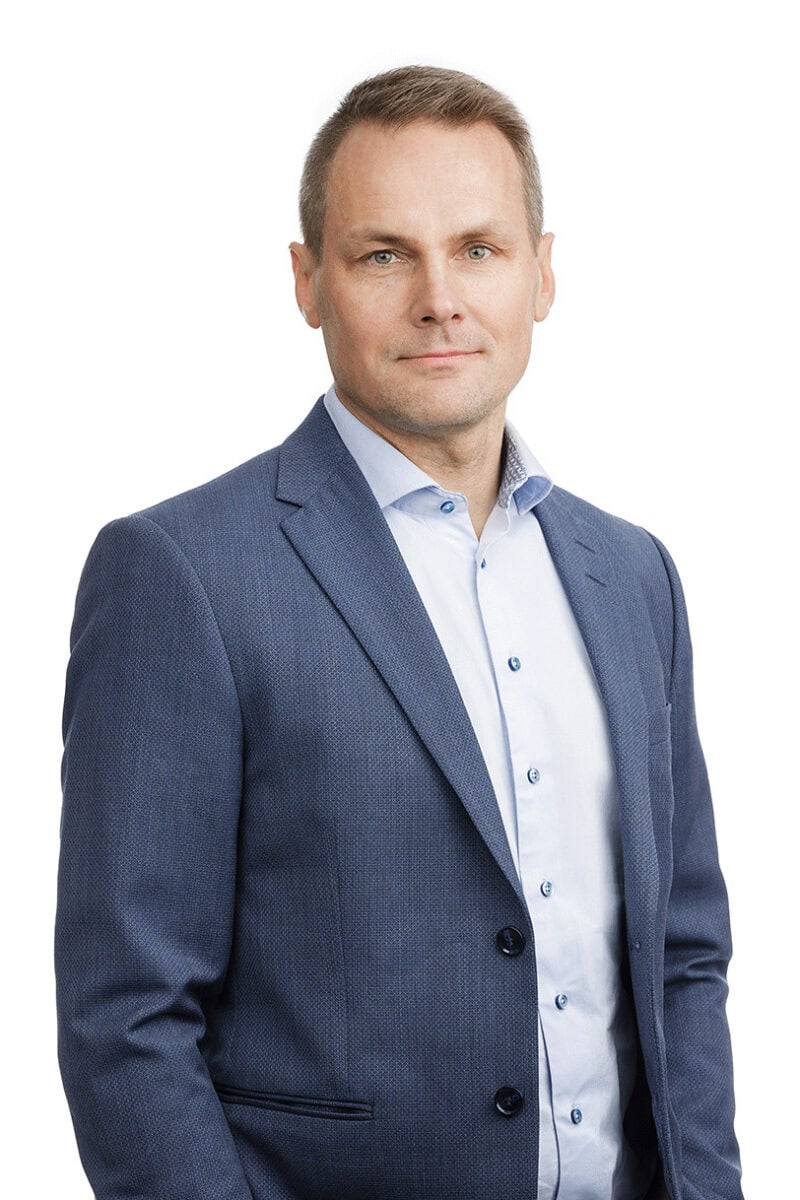Customer Needs at the Centre of Patient Dynamics Development
Medaffcon develops the Patient Dynamics tool based on customer feedback and user experience.
“Renewable drug therapy challenges the current complex drug evaluation system,” states Lauri Pelkonen, a leading expert at the Ministry of Social Affairs and Health (STM). For this reason, the evaluation activity is being reformed to better respond to changes in the operating environment.
“The situation is exceptional, as the entire industry unanimously sees a common large goal and big picture. A lot of groundwork has been done. I am optimistic and trust that we will make progress,” Lauri Pelkonen from the Ministry of Social Affairs and Health states.
Pelkonen spoke about the development and future of national drug evaluation activities at Medaffcon’s Emma customer event.
Pelkonen shifted to the position of leading expert at the Ministry of Social Affairs and Health (STM) in January. In his role, he coordinates the preparation of government programme records related to medicines and pharmacy economics. He will work in this expert role until the end of 2026, after which he will return as the director of Hila (Pharmaceuticals Pricing Board).
Led by Pelkonen, the Medicines and Pharmacy Economics project continues the reform of drug matters based on the roadmap of Prime Minister Juha Sipilä’s government and ensures the implementation of rational drug therapy. This project prepares and implements the government programme’s objectives concerning medicines and pharmacy economics.
“The goal of the reform is to improve the effectiveness, safety, quality, economy, equality, and availability of drug treatments. Structural reforms aim to improve the sustainability of public finances,” Pelkonen states, a leading expert at the Ministry of Social Affairs and Healthl (STM).
The project is extensive. Its topics include pharmacy regulation and economics, development of drug evaluation activities, adoption of new drugs, digitalisation and information management in drug therapy, guidance in drug therapy, and drug availability.
“Politically, the most interesting aspect is the pharmacy economy and its regulation. Views on the development of pharmacy operations are very diverse,” Pelkonen says.
The drug affairs reform is a cross-governmental project that began during Prime Minister Juha Sipilä’s term with the preparation of a roadmap. Various studies on the pharmaceutical sector’s development were conducted during Prime Minister Sanna Marin’s term. These studies are the background for the Programme of current Prime Minister Petteri Orpo’s Government records on drug matters.
According to Pelkonen, never before has a government programme included as many drug matters as it does now under Prime Minister Petteri Orpo.
Drug evaluation activities are being reformed to better respond to changes in the operating environment, especially in three main areas: European-wide clinical evaluations of drugs (EU HTA) will be gradually implemented starting in 2025. In 2025, cancer drugs and ATMP preparations will be included; in 2028, rare disease drugs; and in 2030, all drugs. A service reform project aims to increase the effectiveness of healthcare methods. Pelkonen’s led Medicines and Pharmacy Economics project includes drug treatment evaluations.
The service reform aims to reform and strengthen the national evaluation of healthcare methods by consolidating expertise and resources into one entity. Uniformly evaluated, effective, and cost-effective methods are adopted in social and health care.
There is no guideline in the government programme on dismantling multi-channel financing of drug therapy. Of the themes, this programme has been on the agendas of different governments for the longest – almost 20 years. Pelkonen does not believe this programme will be implemented in 2026, as Prime Minister Sanna Marin’s government outlined.
According to Pelkonen, a major problem with the current evaluation activities is their complexity, poor predictability, insufficient resources for evaluating all new drugs and indications, and the fact that recommendations of Council for Choices in Healthcare in Finland (COHERE Finland) are not binding in hospital medicines.
“Complexity arises because the drug dosing method defines the process. Several authorities participate, and the criteria for assessment and decision-making are different,” Pelkonen states.
The controlled introduction of new drugs is hampered by a situation where resources are limited, there is a growing need for treatments, and the industry can endlessly create new opportunities.
In evidence-based decision-making, assessment involves challenges. A central question is whether the achievable health benefits can be considered sufficient relative to the costs incurred.
Medaffcon, founded in 2009, is a Nordic research and consulting company specializing in Real-World Evidence, Medical Affairs, and Market Access. With offices in Stockholm, Sweden, and Espoo, Finland, we provide expert services across the Nordic region. Our services combine strong medical and health economic expertise with modern data science.
Since 2017, Medaffcon has been a subsidiary of Tamro Oyj and is part of the PHOENIX group, which is a leading provider of healthcare services in Europe.

Medaffcon develops the Patient Dynamics tool based on customer feedback and user experience.

Patient Dynamics tool compiles up-to-date and regional data on medicine use in Finland and Sweden.

The aim of the cooperation is to harmonize processes and produce joint assessments that each country can use in its own decision-making.

Market Access Lead
MSc (Health Sciences), BBA
+358 40 580 0567
simo.jaaskelainen@medaffcon.com
Simo started as the leader of Medaffcon’s Market Access team in November 2024. He is a returnee, as he has also previously worked at Medaffcon. Before returning to Medaffcon, Simo worked in a pharmaceutical company as the head of a Market Access team and has also gained Market Access experience in other pharmaceutical companies. He has over 20 years of experience in the pharmaceutical industry. Simo holds a Master’s degree in Health Sciences and a Bachelor’s degree in Business Administration.
Simo brings to Medaffcon a strong and versatile background in the pharmaceutical industry, particularly in Market Access roles. His strengths include versatility, organizational skills, and the ability to see the bigger picture. In the field of Market Access, Simo does not consider himself an expert in any particular subfield but sees himself as a generalist. He is drawn to the challenges of the industry and the opportunity to find comprehensive solutions that meet the needs of clients.
Ongoing changes in the operating environment require pharmaceutical companies to adapt and adopt new ways of working. Simo believes that the role and importance of Market Access will become even more prominent in a situation where society’s willingness to pay and the needs of the pharmaceutical industry must be aligned in a way that benefits both parties.